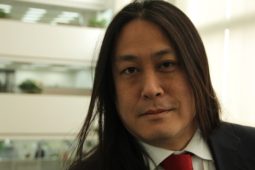
When opening and reform of China took off, Western visitors were received as saviors. But that attitude has changed dramatically, writes Chinese-American Kaiser Kuo at SupChina. “While I full-throatedly decry this kind of anti-foreignism, I think at some level it’s entirely natural, and I’m actually thankful that it’s kept mostly in check,” he says.
Kaiser Kuo:
But as the Olympics approached, China’s growing online population in China had both the means and the incentive to see what the rest of the world was saying about their country. This was a generation that had been taught English — well, taught enough English, anyway, to understand when China’s honor was being besmirched. And they clearly believed it was being besmirched, constantly. Comments sections on any online media allowing comments exploded with vitriol, coming to a real boil in March of 2008 in a groundswell of Chinese anger over Western (read: American) reporting on the Lhasa riot of that month. This was the time of AntiCNN.com, and of the fenqing — 愤青, the “angry youth.” Ensuing months saw things worsen, with protests against the Olympic torch relay in some Western capitals touching off retaliatory boycotts (most notably of the French store Carrefour).
More importantly, in the first decade of the century and still more in this one, Chinese were traveling, studying, and working abroad much, much more than had been the case in the early days of reform and opening. Not surprisingly, the rose-colored glasses came off, and the picture they formed of Western society — always a comparative exercise — was colored now by the changes they had seen in China.
While I full-throatedly decry this kind of anti-foreignism, I think at some level it’s entirely natural, and I’m actually thankful that it’s kept mostly in check. It lacks, mercifully, a religious tradition around which it might congeal (unlike, say, Hindutva, or various Islamic nationalisms, or extreme forms of Christianity). The party-state keeps the embers glowing because it’s occasionally useful for the rally-round-the-flag effect. But it recognizes the double-edged nature of it and doesn’t allow it to flare up uncontrollably.
As for the second part of this question — “Conversely, what do old Chinese think about the young Chinese attitude towards white people?” — my sense is that there’s a wide range of responses to it. Some are sympathetic, and perhaps even embarrassed over any sycophancy they might once have evinced. Some are probably analytical about it, and see it as natural for many of the same reasons I’ve sketched out. And some doubtless see it as dangerously hubristic — and shake their heads sadly at the irony that these angry youngsters should take on the same pathologies they profess to loathe in the Westerners.
Kaiser Kuo is a speaker at the China Speakers Bureau. Do you need him at your meeting or conference? Do get in touch or fill in our speakers’ request form.
Are you looking for more experts on cultural change at the China Speakers Bureau. Do check out this list.
